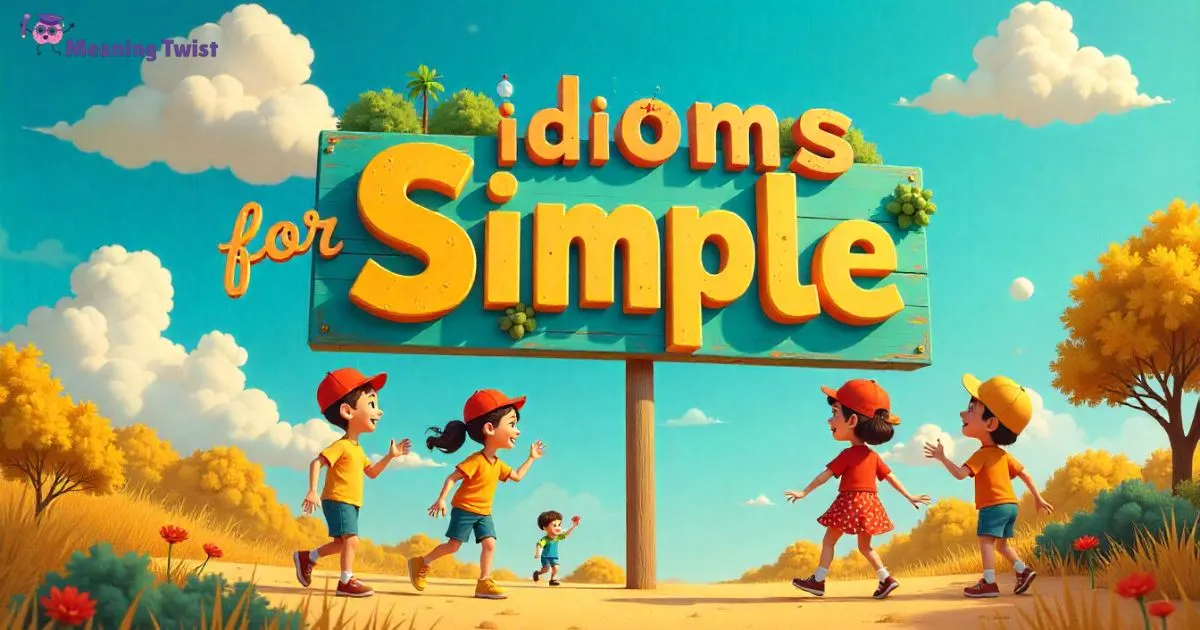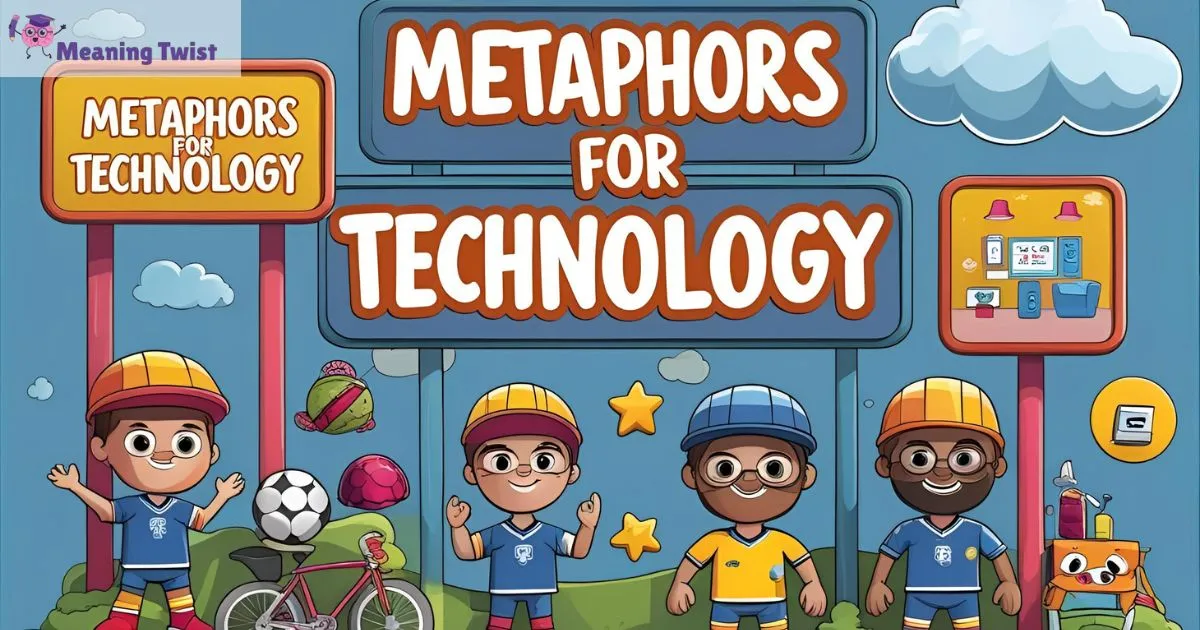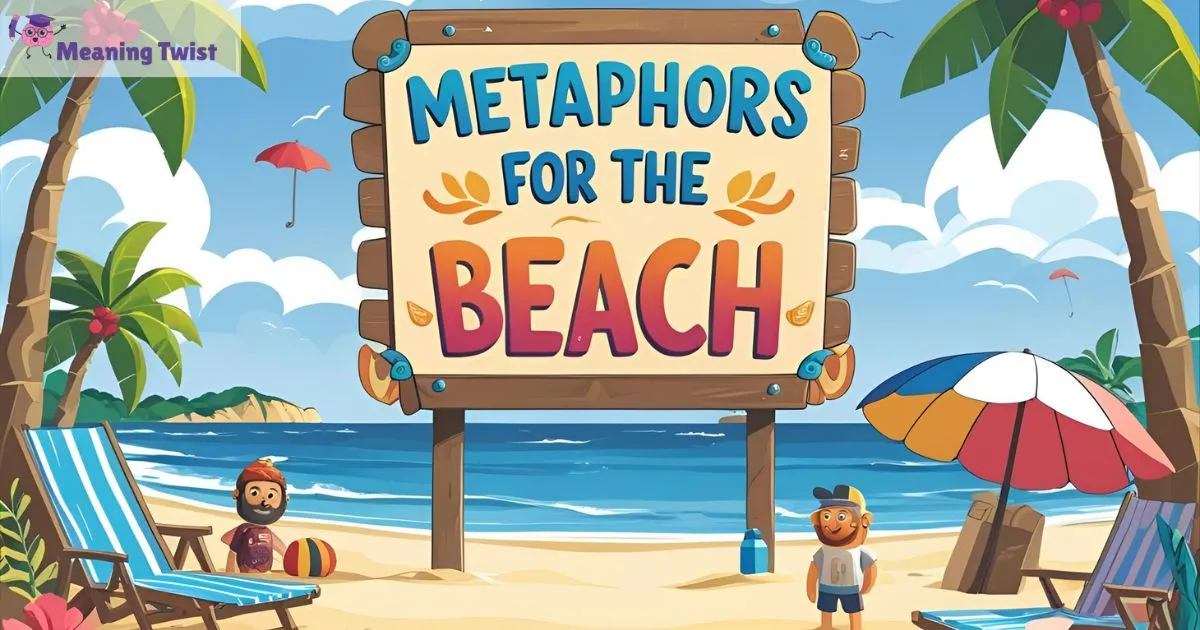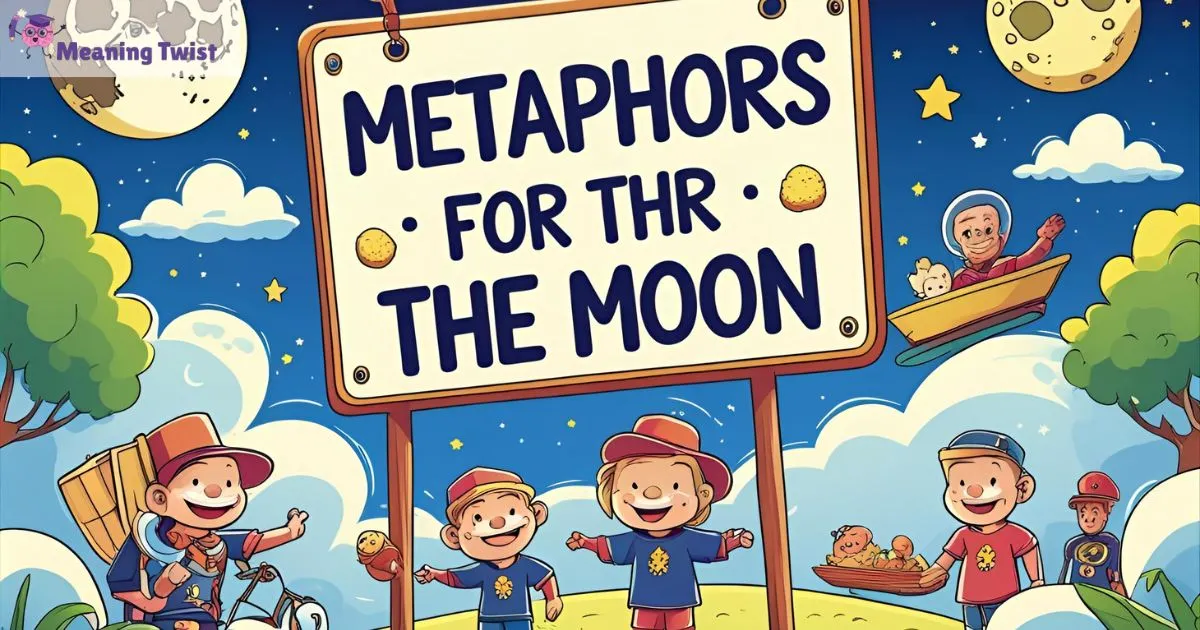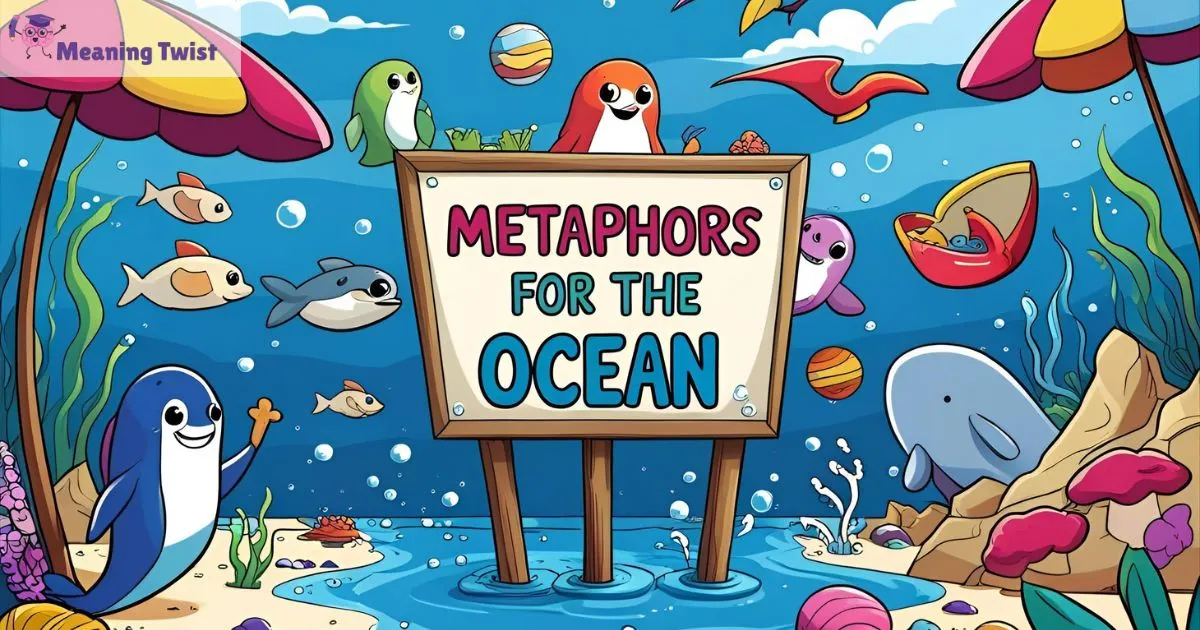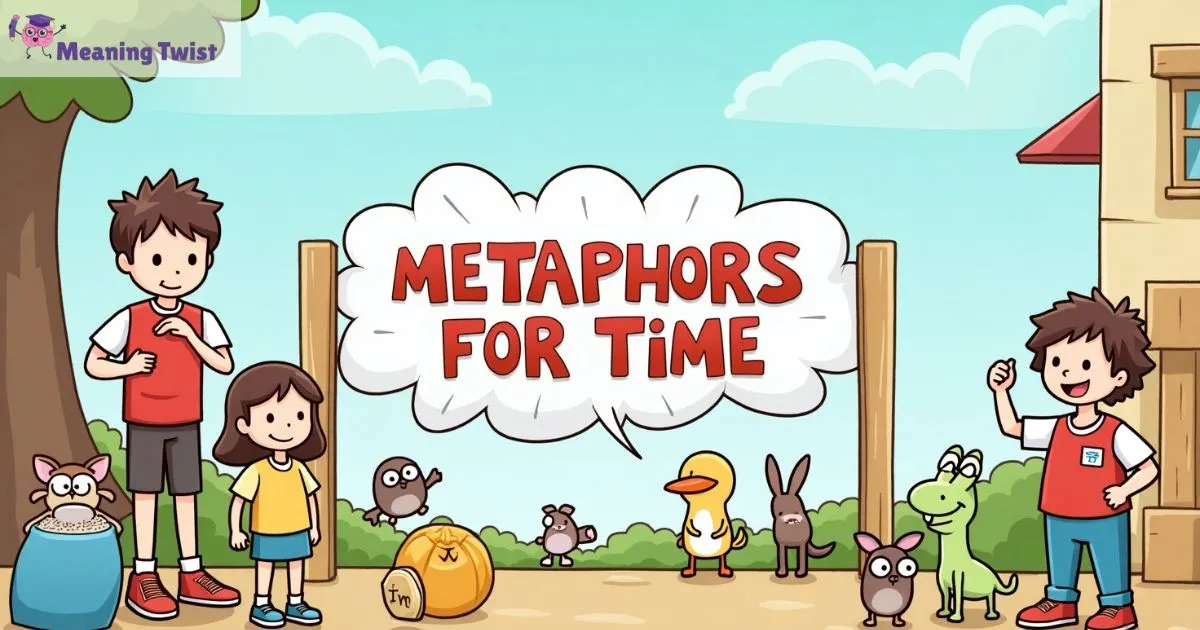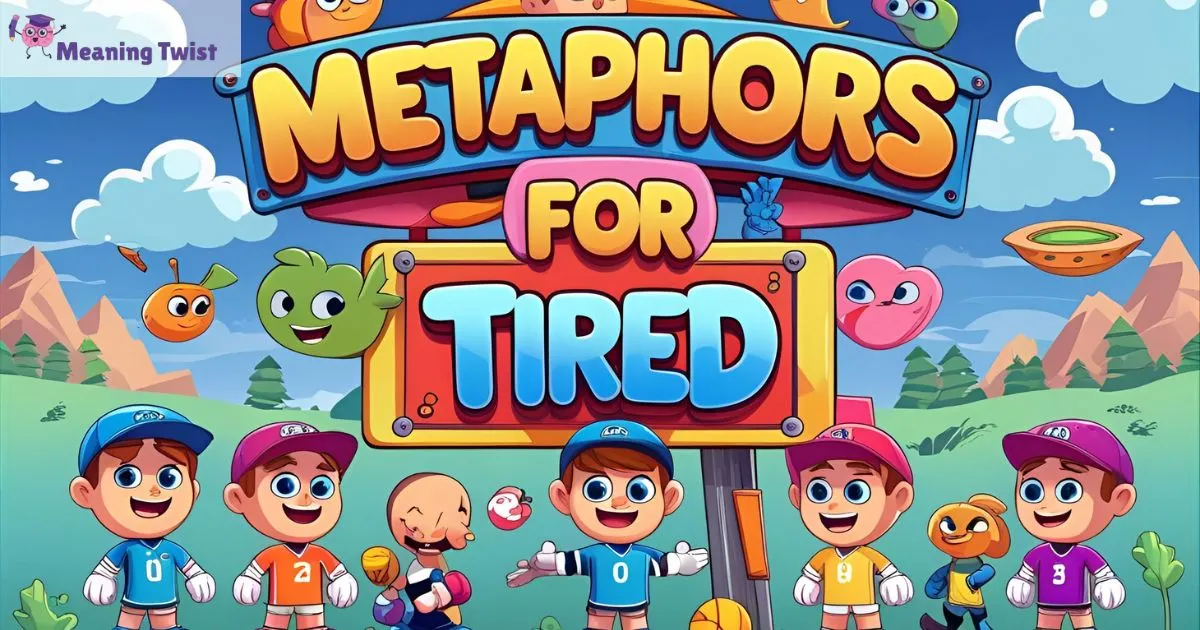
Idioms for Slow are little word treasures that make everyday English more colorful. Idioms are special phrases that don’t always mean exactly what the words say. Instead, they paint a picture in your mind and help you understand a feeling, an action, or even a funny situation. Teachers often explain them as “secret codes” of language that make talking and writing more fun.
When we think about being slow, idioms can describe moments when time feels stretched, when people move carefully, or when something just takes longer than expected. For example, the saying “as slow as molasses” compares someone’s speed to thick syrup moving down a spoon it’s not fast at all, and that image makes the meaning clear and memorable.
From lazy afternoons to patient steps, these phrases add humor, creativity, and emotion to how we speak. Let’s explore Idioms for Slow so you can use them to share your thoughts in exciting new ways!
Idioms for Slow
1. Snail’s pace
Meaning
When something is moving very, very slowly, like a snail. It’s used when someone or something takes a long time to finish something.
When to Use It
Use this idiom when a person, car, or process is moving slowly and not getting done fast. It’s perfect for describing delays or lazy moments.
In a Sentence
I walked home at a snail’s pace because I was tired. He does his homework at a snail’s pace every night. They cleaned the room at a snail’s pace, barely picking up anything!
Other Ways to Say
- Moving super slowly
- Like a turtle walking
- As slow as can be
Fun Tip or Visual Clue
💡Imagine a tiny snail sliding across your desk during class—yep, it’s going to take a while! Draw a snail in your notebook if you’re feeling slow today.
2. Like watching paint dry
Meaning
This idiom means something is so boring and slow that it feels like you’re waiting for paint to dry on a wall—nothing exciting happens.
When to Use It
Use this when you’re feeling bored or when an activity is taking a long time and not fun at all. It’s great for school lessons or chores that drag on.
In a Sentence
I thought the movie was like watching paint dry. She said math class felt like watching paint dry today. They waited in line, and it felt like watching paint dry.
Other Ways to Say
- Super boring
- Dragging on
- Dull and slow
Fun Tip or Visual Clue
💡Think about staring at a wall with wet paint—nothing moves! If your day feels that slow, pretend you’re racing the paint to dry faster.
3. Moving like a sloth
Meaning
This idiom describes someone moving very slowly—just like a sloth, the super slow animal that lives in trees.
When to Use It
Use this when someone is taking too long to get ready, walk, or finish a task. It’s a fun and playful way to say they’re being slow.
In a Sentence
I was moving like a sloth this morning because I didn’t sleep well. He gets dressed like a sloth on school days. They moved like sloths after gym class.
Other Ways to Say
- Super slow
- Lazy walking
- Like a sleepy animal
Fun Tip or Visual Clue
💡Picture a sloth in pajamas trying to brush its teeth. Soooo slow! If you feel like a sloth, try a “fast-mode” dance to wake yourself up!
4. Dragging one’s feet
Meaning
This means someone is not hurrying or is purposely taking their time to avoid doing something.
When to Use It
Use it when someone is slow to start or complete a task, especially when they don’t want to do it. It’s useful at school, home, or chores.
In a Sentence
I was dragging my feet when it was time to clean my room. He kept dragging his feet before doing his homework. They were dragging their feet about going to the dentist.
Other Ways to Say
- Taking your time
- Being slow on purpose
- Not in a hurry
Fun Tip or Visual Clue
💡Imagine someone walking with heavy boots, sliding their feet instead of lifting them. It looks slow, lazy, and kind of funny!
5. Going at a turtle’s pace
Meaning
This idiom means someone or something is moving very slowly, like a turtle.
When to Use It
Use this when describing a person, car, or task that isn’t going fast at all. It’s helpful when things feel like they’re crawling along.
In a Sentence
I was going at a turtle’s pace during the race because I was tired. She always walks to school at a turtle’s pace. They finished the art project at a turtle’s pace.
Other Ways to Say
- Crawling
- Super slow
- Like a tortoise
Fun Tip or Visual Clue
💡Picture a turtle carrying a backpack—slow and steady! Draw a turtle next to your to-do list when you need to slow down and do things carefully.
6. Slow as molasses
Meaning
This means something is moving or happening really slowly—just like thick molasses.
When to Use It
Use it when someone or something is unusually slow, especially during tasks, walks, or thinking.
In a Sentence
I was slow as molasses this morning. He is slow as molasses when it’s time to get dressed. They were slow as molasses in the lunch line.
Other Ways to Say
- Sluggish
- Extra slow
- Like honey in winter
Fun Tip or Visual Clue
💡Imagine trying to pour molasses on a cold day—it barely moves! Use this idiom when your day feels extra slow.
7. Taking forever
Meaning
This idiom means something is taking a really long time to finish or happen.
When to Use It
Say this when you feel impatient or when you’ve been waiting for something for too long.
In a Sentence
I felt like I was taking forever to finish my book report. He was taking forever to eat his breakfast. They were taking forever to get ready for the trip.
Other Ways to Say
- So slow
- Never-ending
- Too long
Fun Tip or Visual Clue
💡Pretend you’re waiting for a cookie to bake and it’s taking forever. That’s how you’ll remember this phrase!
8. Inch along
Meaning
It means to move very slowly, like moving just one inch at a time.
When to Use It
Use this when someone or something is crawling or creeping very slowly forward.
In a Sentence
I inched along the hallway because I was sleepy. He inched along the sidewalk in his flip-flops. They inched along the puzzle, one piece at a time.
Other Ways to Say
- Creep forward
- Move a little bit
- Tiny steps
Fun Tip or Visual Clue
💡Think of an inchworm moving one loop at a time. That’s what inching along looks like—small and slow!
9. Going at a snail’s pace
Meaning
It means someone or something is moving extremely slowly, just like a snail.
When to Use It
Use it when describing a very slow process or when someone is moving without any rush at all.
In a Sentence
I was going at a snail’s pace during the race. She read the book at a snail’s pace. They worked on the puzzle at a snail’s pace all afternoon.
Other Ways to Say
- Extra slow
- Sluggish
- Crawling
Fun Tip or Visual Clue
💡Close your eyes and picture a snail wearing tiny sneakers—that’s how slow we’re talking!
10. Crawl
Meaning
This means to move very slowly, like crawling on hands and knees.
When to Use It
Use it when something or someone is barely moving or moving with great effort.
In a Sentence
I crawled to the couch after gym class. He crawled through his homework last night. They crawled across the playground like sleepy puppies.
Other Ways to Say
- Move slowly
- Inch along
- Drag
Fun Tip or Visual Clue
💡Picture a baby crawling across the floor with a blanket on its back—that’s what this idiom feels like!
11. Steady as a tortoise
Meaning
This idiom means moving slowly but without stopping—just like a tortoise who keeps going, step by step.
When to Use It
Use it when someone is working at a calm, slow pace but is not giving up or getting distracted.
In a Sentence
I worked on my science project steady as a tortoise. He solved the puzzle steady as a tortoise. They climbed the hill steady as a tortoise, never rushing.
Other Ways to Say
- Slow and steady
- One step at a time
- Calm and focused
Fun Tip or Visual Clue
💡Imagine the tortoise from the race story—he doesn’t zoom, but he wins because he never stops!
12. Running on turtle time
Meaning
This idiom means doing things slower than usual—like turtles who never rush.
When to Use It
Use it when someone is moving slower than others or taking their time without stress.
In a Sentence
I was running on turtle time all morning. He runs on turtle time every time we have to leave. They were running on turtle time while getting dressed.
Other Ways to Say
- Not in a hurry
- Super slow mode
- Easygoing pace
Fun Tip or Visual Clue
💡Pretend your clock ticks only once every minute—now that’s turtle time!
13. Plodding along
Meaning
This idiom means to move or work in a slow and steady way, often with effort.
When to Use It
Use it when someone is doing something difficult or tiring, but keeps going.
In a Sentence
I kept plodding along with my drawing even though I was tired. He was plodding along through his math problems. They plodded along on the nature trail with heavy backpacks.
Other Ways to Say
- Slowly working
- Steady effort
- One foot at a time
Fun Tip or Visual Clue
💡Imagine a big pair of boots making heavy steps in the mud—that’s what plodding feels like!
14. Glacial pace
Meaning
This means something is moving incredibly slowly—like a glacier, which can take years to move.
When to Use It
Use this when someone or something is almost not moving at all, or feels very delayed.
In a Sentence
I was writing at a glacial pace because I kept getting distracted. He ate lunch at a glacial pace. They were moving at a glacial pace during the hike.
Other Ways to Say
- Super slow
- Barely moving
- Frozen in time
Fun Tip or Visual Clue
💡Glaciers are big ice mountains that slide very slowly—imagine sitting on one waiting to reach school!
15. Languid
Meaning
This word means slow and lazy, often because of tiredness or feeling relaxed.
When to Use It
Use it when someone is moving gently and slowly, like they have no energy or care.
In a Sentence
I felt languid after lunch on a hot day. He gave a languid wave from the couch. They moved languidly through the museum like sleepy cats.
Other Ways to Say
- Lazy slow
- Calm and sleepy
- Sluggish
Fun Tip or Visual Clue
💡Imagine lying in a hammock with a breeze—you wouldn’t want to move fast either!
16. Moving like a sloth
Meaning
This idiom means moving super slowly, just like a sloth, the slowest mammal on Earth.
When to Use It
Use it when someone is really dragging their body or doing things very slowly.
In a Sentence
I was moving like a sloth before breakfast. He moves like a sloth on school mornings. They cleaned the room like sloths—barely moving!
Other Ways to Say
- Ultra slow
- Sluggish and sleepy
- Lazy movement
Fun Tip or Visual Clue
💡Picture a sloth hanging from a tree, yawning—slow and cute, but not quick at all!
17. Going at a snail’s trot
Meaning
This idiom is a silly way to say someone is moving extremely slowly—because even if a snail tried to trot, it would still be slow!
When to Use It
Use this when someone is trying to be fast but is still going super slow.
In a Sentence
I was going at a snail’s trot while hurrying to class. He jogged to school at a snail’s trot. They packed their bags at a snail’s trot.
Other Ways to Say
- Slow sprint
- Trying but slow
- Funny slow pace
Fun Tip or Visual Clue
💡Imagine a snail wearing running shoes—it still wouldn’t win the race!
18. Dallying
Meaning
This idiom means wasting time by being slow or distracted.
When to Use It
Use this when someone is not focused and is moving slowly because they’re playing around or stalling.
In a Sentence
I was dallying instead of doing my homework. He kept dallying before bedtime. They were dallying in the hallway and missed the bell.
Other Ways to Say
- Goofing off
- Not hurrying
- Wasting time
Fun Tip or Visual Clue
💡Think of someone stopping to smell every flower while walking to class—that’s dallying!
19. Creeping
Meaning
This idiom means moving very slowly, often quietly or carefully.
When to Use It
Use it when someone is trying not to be seen or is slowly moving forward.
In a Sentence
I was creeping through the hallway so I wouldn’t wake anyone. He was creeping up behind me to scare me. They were creeping like cats through the bushes.
Other Ways to Say
- Sneaking slowly
- Tiptoeing
- Cautious walking
Fun Tip or Visual Clue
💡Creeping can be spooky or sneaky—picture a cartoon spy with sunglasses sneaking into a room!
20. Going at a slug’s pace
Meaning
This idiom means moving extremely slowly, like a slug which moves even slower than a snail.
When to Use It
Use it when someone is going so slowly that it feels like time has stopped.
In a Sentence
I was going at a slug’s pace this morning. He walks at a slug’s pace when he’s sleepy. They were going at a slug’s pace during cleanup time.
Other Ways to Say
- Slower than slow
- Barely moving
- Stuck in slow mode
Fun Tip or Visual Clue
💡Slugs don’t even have shells—they just slide slowly across the ground. Pretend you’re racing a slug next time you’re slow!
21. Going at a slug’s pace
Meaning
This idiom means someone is moving even slower than a snail—just like a slimy, slow-moving slug.
When to Use It
Use it when a person is extra slow, especially during chores, walks, or homework.
In a Sentence
I was going at a slug’s pace after lunch. He was going at a slug’s pace while tying his shoes. They were going at a slug’s pace during cleanup time.
Other Ways to Say
- Slower than slow
- Gliding slowly
- Super sluggish
Fun Tip or Visual Clue
💡Picture a slug carrying a heavy backpack—it’s slow, sticky, and silly-looking!
22. Ambling along
Meaning
This idiom means walking in a slow, relaxed way—like you’re enjoying your time.
When to Use It
Use it when someone isn’t in a rush and is just moving casually, usually outdoors.
In a Sentence
I was ambling along the park path enjoying the sun. He ambled along the hallway, humming a tune. They were ambling along the beach collecting shells.
Other Ways to Say
- Walking slowly
- Taking it easy
- Strolling
Fun Tip or Visual Clue
💡Imagine a cowboy walking with slow, lazy steps through a quiet town. That’s ambling!
23. Trudging
Meaning
Trudging means walking slowly and with effort, usually because you’re tired or the path is tough.
When to Use It
Use it when someone is walking but looks like it’s hard work, like after playing or carrying something.
In a Sentence
I was trudging up the hill with my heavy backpack. He trudged to the classroom after recess. They were trudging through the muddy field.
Other Ways to Say
- Heavy walking
- Step by step
- Weary march
Fun Tip or Visual Clue
💡Pretend your shoes are full of sand—that’s how trudging feels!
24. Like a herd of turtles
Meaning
This funny idiom means a group of people or things is moving very slowly together.
When to Use It
Use it when a group—like your family or classmates—is taking forever to move.
In a Sentence
I said we looked like a herd of turtles getting out of the car. He joked his team was like a herd of turtles at practice. They moved like a herd of turtles through the museum.
Other Ways to Say
- All slow together
- Slow-motion group
- Crawling team
Fun Tip or Visual Clue
💡Picture a big bunch of turtles all going the same way—slow and steady and bumping into each other!
25. Moving at a snail’s gait
Meaning
This idiom means moving at a very slow walking speed—like a snail’s tiny steps.
When to Use It
Use it when someone is barely making progress and every step is slow.
In a Sentence
I was moving at a snail’s gait on the way to bed. He moved at a snail’s gait through the hallway. They walked to the store at a snail’s gait.
Other Ways to Say
- Super slow steps
- Creeping forward
- Slow-motion walk
Fun Tip or Visual Clue
💡Gait means “way of walking”—so just imagine a snail doing the slowest walk ever!
26. Moseying along
Meaning
Moseying means walking slowly with no rush, often while looking around or enjoying the moment.
When to Use It
Use it when someone is walking without a plan or is just passing time.
In a Sentence
I was moseying along the sidewalk after school. He moseyed along the toy aisle, looking at everything. They were moseying along the hallway before class.
Other Ways to Say
- Strolling
- Wandering
- Taking your sweet time
Fun Tip or Visual Clue
💡Imagine a cowboy with a hat tipped down, hands in pockets, just moseying through town!
27. Wading through mud
Meaning
This idiom means moving very slowly, like you’re stuck or trying to walk in thick, sticky mud.
When to Use It
Use it when someone is having a hard time getting things done or moving forward.
In a Sentence
I felt like I was wading through mud while doing homework. He was wading through mud trying to clean his room. They were wading through mud during the last lap of the race.
Other Ways to Say
- Struggling forward
- Slow and heavy
- Stuck in place
Fun Tip or Visual Clue
💡Pretend your legs are stuck in gooey mud and you’re trying to move—that’s what this idiom means!
28. Going at a sloth’s speed
Meaning
This idiom means someone is moving at the same speed as a sloth—which is almost not moving at all!
When to Use It
Use it when a person is so slow it feels like they’re barely moving.
In a Sentence
I was going at a sloth’s speed all day. He got ready at a sloth’s speed this morning. They cleaned their room at a sloth’s speed and missed playtime.
Other Ways to Say
- Crawling speed
- Slow and sleepy
- Taking forever
Fun Tip or Visual Clue
💡Sloths only move when they really have to—pretend you’re one climbing a tree super slowly!
29. Plugging along
Meaning
This means to keep going slowly and steadily, even if it’s not easy.
When to Use It
Use it when someone is doing their best, even if they’re not fast.
In a Sentence
I kept plugging along with my drawing. He’s plugging along with his reading list. They were plugging along during the science experiment.
Other Ways to Say
- Steady effort
- Keep moving
- Not giving up
Fun Tip or Visual Clue
💡Imagine a robot with low battery still moving forward—slow but determined!
30. Like a tortoise on tranquilizers
Meaning
This silly idiom means someone is moving super slowly—even slower than a regular tortoise!
When to Use It
Use it when something is almost too slow to believe, often in a funny way.
In a Sentence
I was moving like a tortoise on tranquilizers this morning. He acted like a tortoise on tranquilizers during clean-up. They finished their test like tortoises on tranquilizers.
Other Ways to Say
- Extra-extra slow
- Nearly frozen
- Sleepwalking
Fun Tip or Visual Clue
💡Picture a tortoise yawning in slow motion—now that’s slow!
31. Lumbering along
Meaning
Lumbering means moving in a heavy, clumsy way, usually slowly.
When to Use It
Use it when someone is walking slowly and heavily, like they’re stomping or tired.
In a Sentence
I was lumbering along the hallway with my big backpack. He lumbered along after recess. They were lumbering along after lunch like sleepy bears.
Other Ways to Say
- Clunky steps
- Heavy walking
- Slow and awkward
Fun Tip or Visual Clue
💡Imagine a big bear trying to tiptoe—it doesn’t work! That’s lumbering.
32. Slogging through mud
Meaning
This idiom means to move with difficulty, like walking through thick mud.
When to Use It
Use it when someone is working really hard but progress is very slow.
In a Sentence
I was slogging through mud trying to finish my chores. He was slogging through mud while doing his reading. They slogged through mud on their way to the tent.
Other Ways to Say
- Struggling forward
- Heavy going
- Hard and slow
Fun Tip or Visual Clue
💡Close your eyes and imagine your shoes stuck in sticky mud—you try to move, but it’s so hard!
33. Like a turtle in peanut butter
Meaning
This funny idiom means something is extra slow, like a turtle trying to move in sticky peanut butter.
When to Use It
Use it when something is both funny and slow, especially when someone is trying hard but still slow.
In a Sentence
I was like a turtle in peanut butter during math class. He moved like a turtle in peanut butter when cleaning. They finished like turtles in peanut butter.
Other Ways to Say
- Very slow
- Sticky and slow
- Laughably slow
Fun Tip or Visual Clue
💡Imagine a turtle stuck in a jar of peanut butter—slow, messy, and kind of funny!
34. Going at a tortoise’s trot
Meaning
This idiom means someone is trying to go faster but still very slow—like a tortoise doing its best to run.
When to Use It
Use it when someone is putting in effort but isn’t going very fast.
In a Sentence
I was going at a tortoise’s trot while hurrying to school. He packed up at a tortoise’s trot. They finished the game at a tortoise’s trot.
Other Ways to Say
- Trying but slow
- Slightly faster crawl
- Funny speed
Fun Tip or Visual Clue
💡Picture a tortoise wearing running shoes and trying to jog—it’s slow but adorable!
35. At a snail’s crawl
Meaning
This idiom means moving at the very slowest pace possible, just like a snail crawling.
When to Use It
Use it when someone is barely moving or doing something very slowly.
In a Sentence
I was at a snail’s crawl getting ready for school. He walked to the car at a snail’s crawl. They were at a snail’s crawl during cleanup time.
Other Ways to Say
- Barely moving
- Super slow
- Slower than slow
Fun Tip or Visual Clue
💡Picture a snail crawling across your notebook—it might finish next week!
Exercise to Practice Idiom Slow
- Marcus was so slow getting ready this morning—it felt like he was ______________.
- The old train was moving at a ______________, barely faster than walking.
- Waiting for the cookies to bake felt ______________. I just wanted to eat!
- Liam was ______________ when asked to clean his room—he clearly didn’t want to do it.
- Grandma said the elevator moved like ______________.
- During the art show, we walked ______________ so we could see every painting.
- Watching that documentary was like ______________—boring and slow.
- After lunch, I felt ______________ and didn’t want to go back to math class.
- Our dog Bella is usually fast, but today she was ______________ down the sidewalk.
- The puzzle game was so hard, we could only ______________ through it one piece at a time.
- When I’m tired, I move ______________ like I don’t have a care in the world.
- The giant parade was moving at a ______________, but everyone still cheered.
- We were ______________ with our writing, checking every word for mistakes.
- Timmy’s turn in the board game was ______________—everyone else got impatient.
- This morning’s bus was coming at a ______________; we waited forever!
- The robot on screen began to ______________ as it lost power.
- Julia joked that she was ______________ after gym class, barely lifting her feet.
- The line at the amusement park moved at a ______________, and I nearly fell asleep.
- Stop ______________ and finish your lunch—we’re late!
- My little brother was ______________ behind us on the trail, collecting every rock.
✅ Answer Key
- Dragging one’s feet
- Snail’s pace
- Taking forever
- Dallying
- Molasses in January
- Inch along
- Like watching paint dry
- Languid
- Going at a snail’s trot
- Crawl
- Moving like a sloth
- Turtle’s pace
- Steady as a tortoise
- Running on turtle time
- Glacial pace
- Creeping
- Sloth-like
- Slow as molasses
- Plodding along
- Snail’s pace
How to Use Idioms for Slow Moments in Everyday Conversations
Using idioms for slow moments in daily conversations adds life and color to otherwise dull or dragging situations. Whether you say “moving at a snail’s pace” or “slow as molasses,” these phrases vividly express delays, laziness, or slow progress.
They help your words feel more relatable and entertaining. Instead of simply saying something is slow, using these idioms makes your storytelling more engaging and expressive turning ordinary delays into memorable moments.
Final Words
You’re not alone if you’ve ever felt like the world is moving too fast and you’re just trying to catch up. That’s where idioms for slow come in they help you explain those slower-paced feelings without sounding out of place.
When you’re in school, at home, or talking with friends, these expressions make tricky moments easier to share and understand. So next time you’re feeling this way, you’ll know exactly what to say! Keep exploring idioms they’re your secret tool to speak and write with more color, confidence, and heart. You’ve got this!

Hi, I am Joey, the admin of meaningtwist.com. I simplify deep meanings and twist ordinary words into extraordinary insights to spark your curiosity and clicks!

